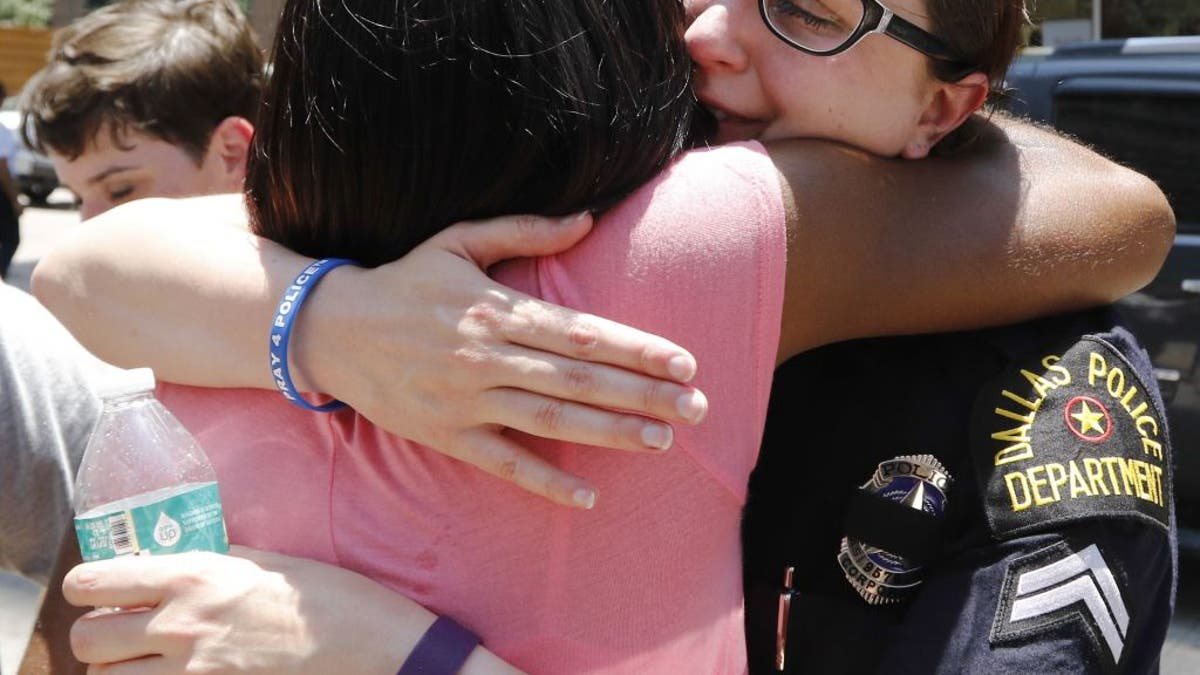
(AP)
The sweeping electoral victory of Donald Trump has unleashed a torrent of commentary over how, and to what degree, the iconic businessman’s election will influence a wide variety of public policy areas.
One area where President-elect Trump’s victory will no doubt resonate is within the domestic law enforcement community.
Few professions or groups of individuals have been as assailed and maligned over the past few years as the American police officer. Detractors and critics have often painted our nation’s police officers as racist and brutal and the entire criminal justice system as systemically prejudiced.
Innuendo and misinformation in the wake of controversy has become the standard response among many within the public discourse.
Sadly, one area where law enforcement should have reasonably expected a basic sense of solidarity and support has been lacking as well.
The Obama administration, from the White House down through the Department of Justice, has at times done more to undermine confidence in our basic law enforcement institutions than to uphold them — a latent sense of skepticism toward any and all actions on the part of law enforcement the norm.
But with the election of Donald Trump to the presidency there is a palpable sense that things are going to change.
Candidate-Trump was unabashed in his support for law enforcement at nearly every campaign stop, vocalizing and emphasizing his respect for the men and women who risk their lives to uphold the rule of law.
And Trump’s commitment to the American police officer has not wavered since the election. His nomination of Alabama Senator Jeff Sessions to lead the Department of Justice sent an immediate and forceful sign of his intention to scale back activism within the DOJ.
The election of Donald Trump portends other changes affecting the law enforcement community as well, notably:
- Support from the White House
This will likely be the most immediate change. Instead of the default criticism seen from the Obama administration, a Trump administration is likely to adopt a more even-handed approach in response to controversial police-related issues.
Of course, when legitimate indiscretions or outright criminality among members of the police community occur they will no doubt be dealt with swiftly and justly; however, the default presumption of guilt against members of the law enforcement community should come to an end.
- Respect for the prerogatives of state and local law enforcement
Some on the ideological Left pine for a day when federal oversight of state and local law enforcement constitutes the norm rather than the exception.
To be certain, in the limited instances where clear and identifiable patterns of police misconduct are uncovered, federal oversight may be the most appropriate remedy to ensure the rights of all Americans are respected; however, state and local law enforcement remedies are often highly idiosyncratic and the most effective solutions to local problems are often community-based.
Under the Obama administration, DOJ investigations into state and local law enforcement and the pursuit of consent decrees have greatly exceeded those initiated by the preceding Bush and Clinton administrations.
A Trump Justice Department headed by Senator Sessions may be inclined to scale back on federal incursions into state and local police issues, instead respecting the local democratic process.
- An increase in morale
The law enforcement community is battling not just a crisis in public relations but a crisis in morale as well. As such, recruiting, retention, and productivity efforts within law enforcement have become strained in ways unseen in decades.
The Philadelphia and Washington, D.C. police departments, among many others, are experiencing critical staffing shortages and proactive police work in the city of Chicago — investigative stops were down 90 percent in early 2016 — highlight the dangerous byproduct of a decline in morale.
Improving morale through an increase in community support, inspired by a greater sense of respect and admiration for law enforcement emanating from the top of government on down, can be an amazing catalyst for turning the tide in the profession.
The American police officer is operating within what is arguably the most difficult and dangerous environment in a generation. No single event can provide immediate relief for the systemic obstacles facing the law enforcement community but the incoming Trump administration should provide a welcome start.
